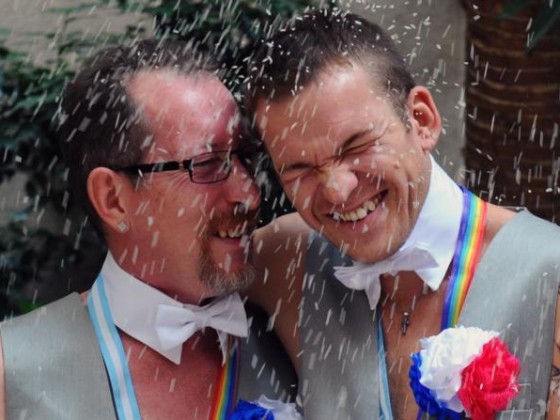“Having the same rights to marry has given us freedom, dignity, happiness and, above all, equality,” says Angie Cordera of her wedding in Argentina to her long-time partner Sofia Rivera.
Cordera, 38, is an accountant from Colombia. Her bride Rivera, also 38, is a psychologist from Spain.
“We loved Buenos Aires, the food, the nightlife, the culture, as well as everything being super-cheap, but also the way other people looked at us,” Cordera says.
